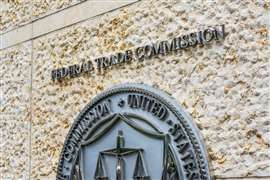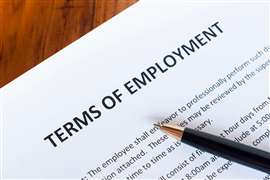Read this article in Français Deutsch Italiano Português Español
Judge postpones effective date of FTC noncompete rule for litigants
14 July 2024
When the U.S. Federal Trade Commission (FTC) established a final rule in April banning noncompete agreements effective Sept. 4, 2024, the ruling was met almost immediately with legal challenges. Business tax firm Ryan, LLC, filed a lawsuit against the FTC as did the U.S. Chamber of Commerce, Business Roundtable, Texas Association of Business and Longview (Texas) Chamber of Commerce.
 Photo: Andriy Blokhin via Adobe Stock
Photo: Andriy Blokhin via Adobe Stock
On May 1, Ryan filed a motion to postpone the effective date of the new FTC rule, with the other plaintiffs joining on May 10. In a ruling filed July 3, Judge Ada Brown of the U.S. District Court for the Northern District of Texas granted the plaintiffs’ motion but limited its ruling to the plaintiffs only. The order said the court intends to issue a final ruling regarding the lawsuit on or before Aug. 30, 2024.
In issuing her decision, Judge Brown said “the text, structure and history of the FTC Act reveal that the FTC lacks substantive rulemaking authority with respect to unfair methods of competition under Section 6(g).”
Linda D. Kennedy, a partner in the Troy, Mich.-based Panagos Kennedy law firm, which specializes in intellectual property (IP) and technology law, said via email that the ruling from Judge Brown, a former IP litigator herself, was not surprising.
“The expansive and partially retroactive ban raised a lot of hackles in industry,” Kennedy said. “It was begging for a legal challenge, and it got one.”
Judge Brown’s ruling comes only days after the U.S. Supreme Court struck down the Chevron doctrine, which for 40 years had allowed courts to defer to reasonable interpretations of ambiguous laws by U.S. regulatory agencies like the FTC.
Kennedy said that while discontent with noncompete agreements, many of which are likely overreaching, had been on the rise, the FTC rule was itself an overreach.
“And that was when the legal framework in place was based upon decades of jurisprudence applying Chevron deference to agency interpretations,” she said. “The FTC’s broad and backward-reaching rule backfired. Now the courts are scrutinizing the FTC’s authority for substantive rule making altogether.”
Kennedy added, “Under the new framework, we expect challenges of agency rules across nearly all federal agencies. Each challenge will turn on the agency’s specific enabling legislation and the APA (Administrative Procedure Act). If an agency interpretation can credibly be characterized as a question of law, a court will owe it no deference. Thus, a party aggrieved by such an interpretation will be incentivized more than ever to challenge that interpretation in court.”
Kennedy said aggrieved parties who have substantial resources at their disposal — more often than not large companies — are expected to make such legal challenges.
“More litigation to come,” she said.
POWER SOURCING GUIDE
The trusted reference and buyer’s guide for 83 years
The original “desktop search engine,” guiding nearly 10,000 users in more than 90 countries it is the primary reference for specifications and details on all the components that go into engine systems.
Visit Now
STAY CONNECTED




Receive the information you need when you need it through our world-leading magazines, newsletters and daily briefings.
CONNECT WITH THE TEAM














